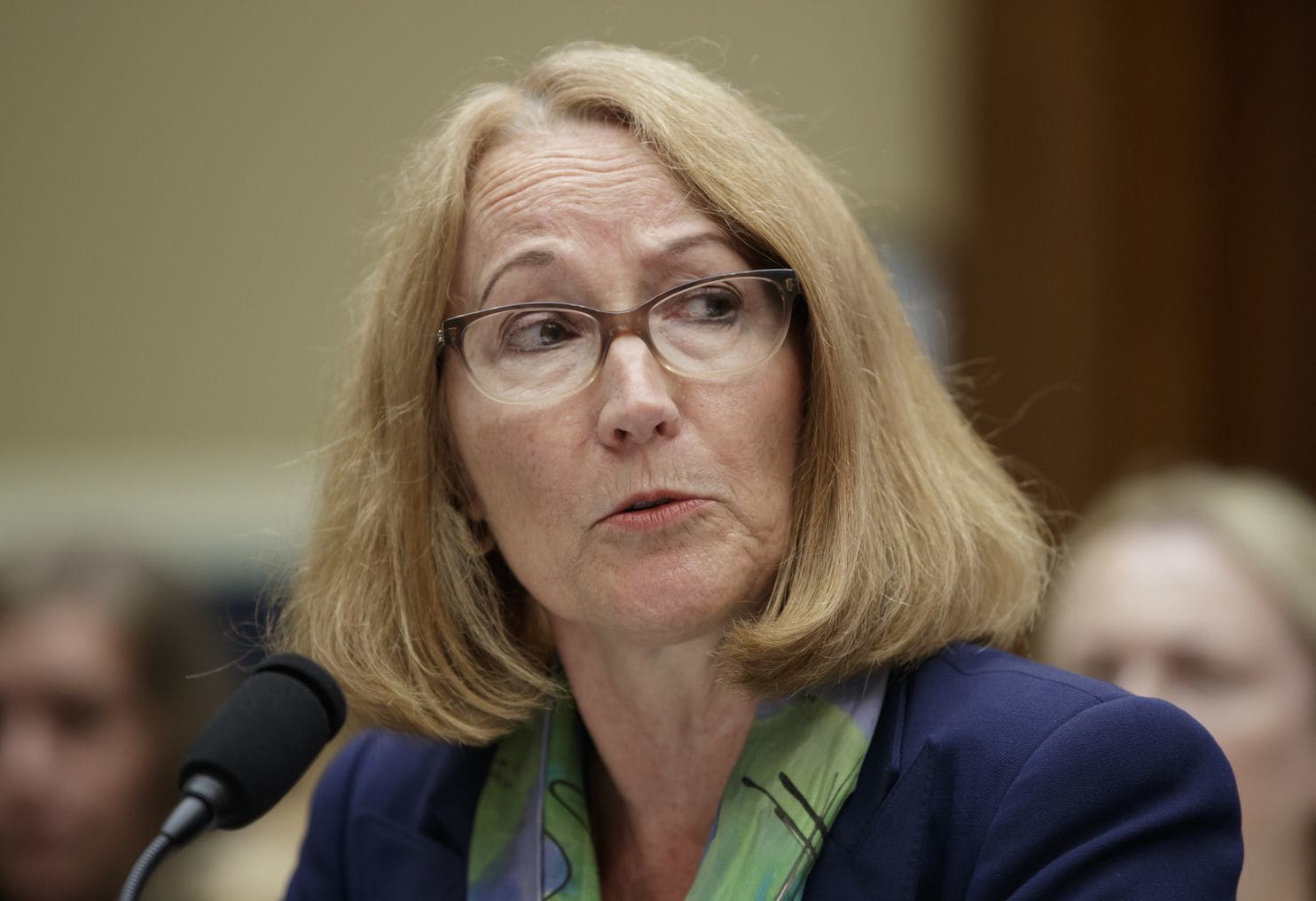Funding, Urgency Lacking in Olympic Abuse Crisis
By Eddie Pells
The tears and anger this time came from lawmakers who spent the day fuming over a growing sex-abuse problem in Olympic sports that leaders have taken too much time to solve while devoting too little money for the fixes. “I just hope everyone here realizes the time to talk is over, and you need to walk your talk,” Rep. Debbie Dingell, D-Mich., said Wednesday shortly after choking back tears while questioning leaders of the U.S. Olympic Committee, USA Gymnastics and the U.S. Center for SafeSport. The hearing of the House subcommittee was filled with both substance and spectacle — the latter coming mostly courtesy of a five-minute burst from Rep. Buddy Carter, R-Ga., who told the USOC’s acting CEO, Susanne Lyons, “you should resign your position now,” and tore into USA Gymnastics CEO Kerry Perry and the rest of the panel for not uttering the exact words: “I’m sorry.” “If you don’t want to say you’re sorry, I don’t want to talk to you,” said Carter, who represents the district where a lawsuit that triggered the mushrooming scandal in gymnastics was filed. The tears and anger this time came from lawmakers who spent the day fuming over a growing sex-abuse problem in Olympic sports that leaders have taken too much time to solve while devoting too little money for the fixes. “I just hope everyone here realizes the time to talk is over, and you need to walk your talk,” Rep. Debbie Dingell, D-Mich., said Wednesday shortly after choking back tears while questioning leaders of the U.S. Olympic Committee, USA Gymnastics and the U.S. Center for SafeSport. The hearing of the House subcommittee was filled with both substance and spectacle — the latter coming mostly courtesy of a five-minute burst from Rep. Buddy Carter, R-Ga., who told the USOC’s acting CEO, Susanne Lyons, “you should resign your position now,” and tore into USA Gymnastics CEO Kerry Perry and the rest of the panel for not uttering the exact words: “I’m sorry.” “If you don’t want to say you’re sorry, I don’t want to talk to you,” said Carter, who represents the district where a lawsuit that triggered the mushrooming scandal in gymnastics was filed. — The budget is enough for 14 full-time employees, which includes five full-time investigators. Seven additional investigators work on a contract basis. The center has fielded 840 reports over 14 months. Reports have come in regarding 38 of the 49 national governing bodies. — Part of the delay in opening the SafeSport center came because the USOC met reluctance from almost everyone in funding, both from outside and inside the Olympic movement. The NGBs are charged on a sliding scale, depending on their size. USA Swimming contributed only $43,000 this year, “but we’re one of the larger NGBs, and based on who we are, we could provide more resources,” CEO Tim Hinchey said. Pfohl said she wouldn’t turn it down. Meanwhile, she is still waiting for paperwork to apply for a $2.5 million grant the government wrote into this year’s budget. (The government gave $9.5 million to USADA in 2016.) The witnesses testified to a continued lack of uniformity in sex-abuse policies among the NGBs, despite efforts that date to at least 2013. Some publish full lists of banned coaches and athletes. Some distribute them only to members of the organizations. Under terms of a recently passed law to protect athletes, the NGBs are supposed to be audited randomly by the SafeSport center, but that project is hamstrung because resources do not exist. Meanwhile, the role of the USOC in overseeing it all remains confusing. Brought up more than once was an exchange during a deposition for a sex-abuse lawsuit in which a USOC lawyer was asked if protecting athletes was a top priority for the federation. “The USOC does not have athletes,” answered Gary Johansen — speaking to the reality that, except during the Olympics, athletes technically fall under the umbrella of their individual sports. Lyons said that mindset will change. “We do hold ourselves responsible, and if there’s a failing, it’s from not properly exercising our authority,” she said. One of the best examples of the USOC using that authority has been the top-to-bottom housecleaning it demanded from USA Gymnastics. Most news about the federation’s changes, however, has been delivered in long news releases. Wednesday marked the first time Perry has made public comments since her hiring in December. She left after the hearing without taking questions. “I’m glad you’re here today, but a lot of people have wanted to hear from you since you took the job,” Dingell said. But Dingell didn’t really like what she heard — “I don’t hear a sense of urgency,” she said — and she was not alone. “As compared to how much money a district attorney’s office has, or how much money a Title IX office has at a school, it’s not in the same ballpark at all,” Nancy Hogshead-Makar, Olympic swimmer and outspoken critic of the USOC’s efforts, said of the SafeSport budget. “Shellie desperately needs more money.” Copyright 2018 The Associated Press. All rights reserved. This material may not be published, broadcast, rewritten or redistributed.
|
.
Any original material on these pages is copyright © BishopAccountability.org 2004. Reproduce freely with attribution.
